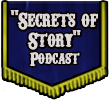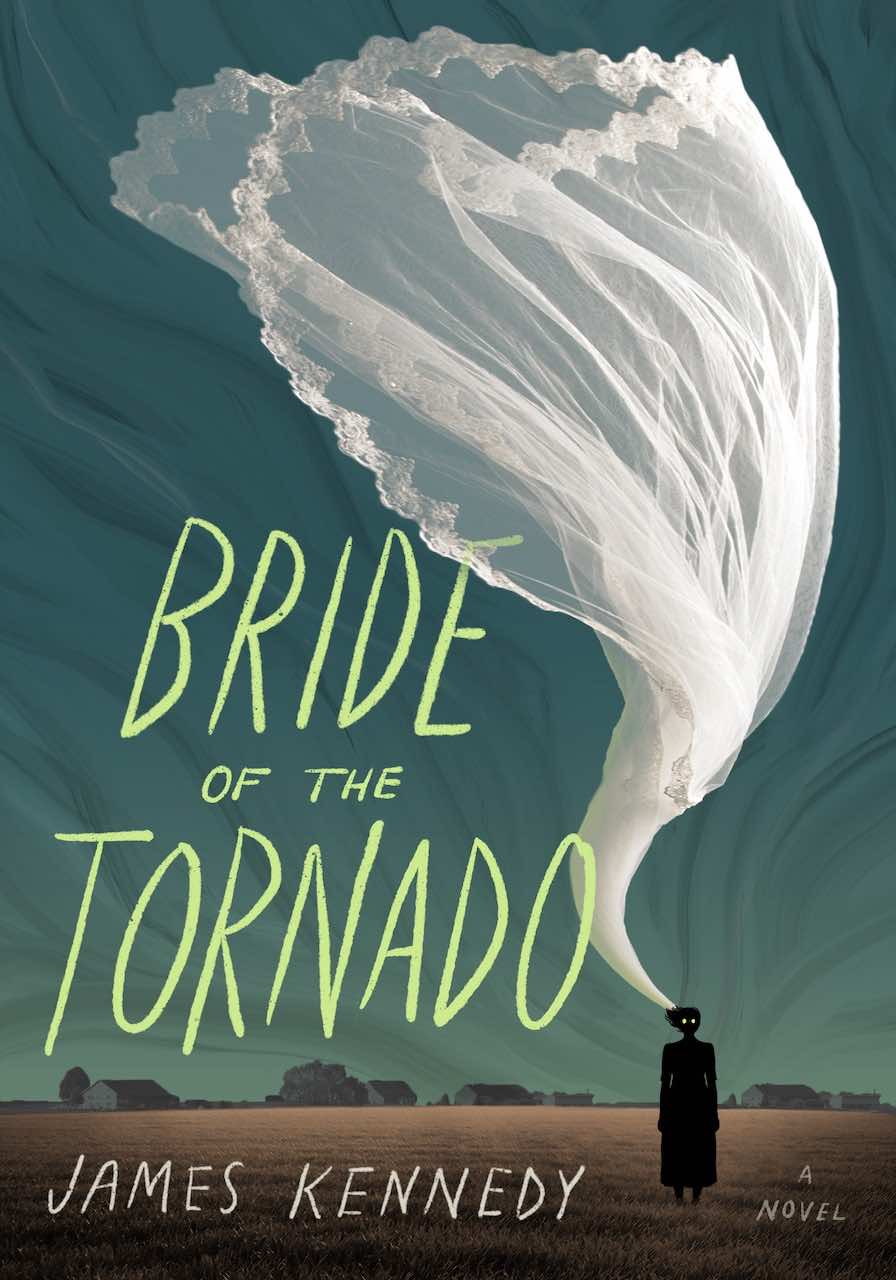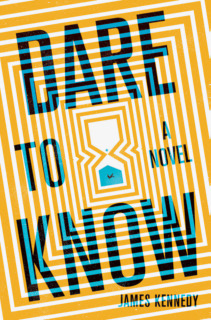Neil Gaiman Feud: RESOLVED
April 14, 2011
« Odd-Fish Art Show at Hegeler Carus mansion 90-Second Newbery: Where the Mountain Meets the Moon by Grace Lin (2010) »
On April 13, 2011, I introduced the amazing Neil Gaiman at his reading at the Rockefeller Chapel at the University of Chicago for the “One Book, One Chicago” program. Some may remember when I first revealed all Neil Gaiman’s books are written by bees, or when I tackled Neil Gaiman at the American Library Association in 2009 and wrestled the Newbery award from him. In this video I finally confront Neil Gaiman in person, reveal the source of my grievance against him, and serenade him with a Katy Perry song. Transcript below.
Neil Gaiman. When we say “Neil Gaiman,” what do most people think of? “Top-notch fantasy author,” maybe, or “renowned graphic novelist,” or “Newbery award winner.”
But I say it is betrayal! It is theft! It is fraud, blasphemy, deceit, treachery, bee-eating traitor!
You’re outraged. Get this joker off stage, you say. Well before I am dragged off, just let me tell you―I, James Kennedy, invented Neil Gaiman. Yes. I made you, Neil. And tonight I will unmake you. All of you, the silky London accent, the disheveled Byronic air―
For what if I told you that Neil Gaiman isn’t British at all! In fact, he is not even Neil Gaiman.

|
I mean really, think about it, people. Nothing about his life adds up. No one man could write so many beloved books, win so many prestigious awards. And what kind of Englishman willingly lives in Minnesota? It doesn’t compute. And is also, according to his blog, a globetrotting speaker, a successful amateur beekeeper, with a Narnia lamp post in his back yard? Now he’s playing with us. And last year married beloved pop star Katy Parry, and is now starring in a remake of Arthur? He’s yanking us around now, he’s daring us to call him out on it―a life so farfetched it makes the fantasy he writes sound like sober realism.
Because his life is fantasy. Neil Gaiman didn’t grow up in East Grinstead of West Sussex―a placename that is clearly just a string of made-up syllables that sound vaguely British―
No, Neil and I grew up together. It’s true! I was like a big brother to him―knew him when he was nothing―sure, Neil and me, a coupla two-bit chumps hangin’ out at the Texaco in Saginaw, suckin’ down Yoo Hoos and talkin’ ’bout dreams. Big dreams. Little Neil, he always was a dreamer. He’d get that faraway look and say, “Jamie, one day I’m gonna do it. I’m gonna be a writer and go to Chicago; see if I don’t.”
“Chicago!” I’d howl. “Why, whoever heard of such a thing! Chicago, he says! Why not say you’re going to the moon! Oh, Chicago, what a load of applesauce!”
 But Little Neil only smiled, and repeated: “Chicago.”
But Little Neil only smiled, and repeated: “Chicago.”
He was so unsure of himself back then—used to be the weird kid who sat in the back of the room, eating dead bees off the windowsill. You should’ve seen the way he looked up to me—copied everything I did! I remember freshman year of high school, when I grew out my long black hair and started wearing a black leather jacket. Little Neil wanted to be cool too! But his wispy ginger hair never looked right, and his jacket was a tan Members Only windbreaker.
I remember when Little Neil came to the Homecoming Dance―he had rubbed black shoe polish in his hair to look mine, and he had taken a black sharpie and actually colored in his windbreaker, filling every inch of it so it would resemble a black leather jacket! Little Neil strutted, actually strutted in―looked so proud of himself!
And I am ashamed to say―I laughed at Little Neil. We all did. We guffawed! I’ll never forget the look of baffled heartbreak in Little Neil’s eyes―the way he ran out of that dance.
That was the year I got popular. I hung out with Little Neil less and less. For the rest of freshman year, we barely spoke―but every time I glimpsed him across the cafeteria, he’d always be staring straight back at me, with a look of hunger.
It was not until that summer that I realized what he was hungry for.
It happened on the night of the Fourth of July. I was a little tipsy from Peach Schnapps, stumbling home alone from a party, feeling pretty cool in my black leather jacket, flicking about my gorgeous long black hair, fireworks exploding in the sky all around me, when I heard a voice. “Oi. Jamie.”
I turned around. It was Little Neil. But he looked different, somehow―I guess he must’ve been working out―and his eyes were fixed in icy determination.
“Uh, hey, Little Neil,” I slurred.
“It’s not Little Neil anymore,” he said. “It’s Big Neil. And today starts my new life.”
“What’s up with the accent?” I said―but never finished, for that is when Neil Gaiman attacked!
And as fireworks burst spectacularly overhead, Neil Gaiman grabbed my black leather jacket―ripped it off me―I staggered back, stunned―Neil Gaiman pushed me down―I sprawled to the dirt, Neil Gaiman pinned my shoulders to the ground with his knees―and then to my horror, in the flickering illumination of thousands of multicolored patriotic explosions that seemed to set the entire universe on fire, Neil Gaiman took out a pair of scissors, and carefully and deliberately cut off my long, lustrous black hair.
“No!” I shrieked. “No, Little Neil, I mean, Big Neil―what are you doing?”
“Taking what I want,” he said grimly, “For the first time in my life.”
And he left me there, on the playground―stripped of my adolescent awesomeness―he left me, and walked out of Saginaw, and never came back.
 Life went on. I guess. My hair never grew back quite the same way―and I couldn’t bring myself to wear a black leather jacket again. I graduated high school, but couldn’t hold down a job. Always felt shiftless. Saginaw―too many memories. I moved to Chicago, lost myself in the big city.
Life went on. I guess. My hair never grew back quite the same way―and I couldn’t bring myself to wear a black leather jacket again. I graduated high school, but couldn’t hold down a job. Always felt shiftless. Saginaw―too many memories. I moved to Chicago, lost myself in the big city.
Then I started to hear rumors of this hotshot writer from England. Wrote stories about vampire wizards or something. And then I happened to see this writer’s picture in the newspaper―I nearly dropped the newspaper in shock―it was Little Neil, all grown up, but wearing my black leather jacket, and a wig made of my hair!
A wig Neil Gaiman wears to this day. Yes, every time you see a picture of Neil Gaiman and his adorably tousled locks, you’re literally looking at me―twenty-odd years ago. I did some research, found pictures―in reality Neil Gaiman is as bald as a coot, resembling nothing so much as a svelte Jeffrey Tambor.
I continued my research. The Little Neil I knew wanted to be a writer, sure, but he could barely mouth his way through Henry and Ribsy! How is it that this functional illiterate became one of the most beloved authors in the world!
The crucial clue came when I learned that Neil Gaiman was an avid beekeeper. A little digging, and I found out the truth: the man has never written a single book! Not a one! They were all written by his insufferable bees!
When Gaiman was a starving writer in 1980s London, living in a coldwater flat, he happened to discover a desiccated bee in his aspidistra. Gaiman painstakingly nursed the sickly bee back to health―not, mind you, out of pity, but only because Gaiman wished to fatten the insect up for its delicious bee-meat.
When the wounded bee regained consciousness, it pleaded with Gaiman to spare its life. “Only let me live, and my children flourish,” it buzzed to the ravenous Gaiman, “and I shall make you great amongst men.” Gaiman had no chance to reply, for he had already passed out from malnutrition; but when he woke up, he found his entire flat slathered in honey swirled in curious patterns: patterns spelling out the complete arc of his award-winning Sandman series! Gaiman, no fool, struck his devil’s bargain, and the rest is history. Pledged to serve the bees, enslaved to the queen’s whim, Gaiman has tirelessly expanded his hive to ONE HUNDRED THOUSAND BEES, all of them working on their own separate novels.
And tonight, we are going to talk about another one of those novels, Neverwhere. I’ve read it—and I gotta admit, it’s pretty good, for a bunch of friggin’ bees.
And so, tonight, the final slap. You come to my city―Chicago―where I live―my house―where my children sleep, Neil―you breeze in here and effortlessly become the selection for this spring’s “One Book, One Chicago”! Congratulations, old friend. I guess you did “make it” in Chicago after all. And you know what?
Even after everything . . . I’m actually proud of you. Despite myself, I can’t help but enjoy each and every one of the books your bees have written.
I . . . forgive you, Neil Gaiman.

|
I, James Kennedy, forgive you! I do! And when I think back to that fateful Fourth of July, so many years ago – when you stood over me, silhouetted in the rocket’s red glare, my black leather jacket and my lustrous long black hair clutched in your hands – I no longer see a bully, a spaz who beat me senseless, violated me, robbed me of my youth, my confidence, my manhood―and practically scalped me―no, I see a little boy―a scared little boy who just wanted to prove to his best friend Jamie that he could be just as good as anyone else.
And I if I could go back in time, I would sing to you―yes, sing, for I can’t help but feel that one of your lovely wife’s songs perfectly encapsulates that fateful Fourth of July―your Independence Day from me―in your wife’s words, I would say
You just gotta ignite the light
And let it shine
Just own the night
Like the Fourth of July
Cause Neil Gaiman, you’re a firework
Come on show ’em what you’re worth
Make ’em go “Oh, oh, oh!”
As you shoot across the sky-y-y
Baby you’re a firework
Come on let your colors burst
Make ’em go “Oh, oh, oh!”
You’re gonna leave ’em fallin’ down-own-own
Thank you, Neil Gaiman. Thank you for everything.
Seriously. Thank you, Neil, for your indulgence and for a lifetime of inspiration (and thanks particularly for saying “I’ve been introduced a lot of times. That was the best.”) It was a thrill to get to speak to you. Thanks also to Annie Tully of the “One Book, One Chicago” program, the Chicago Public Library, the Rockefeller Chapel at the University of Chicago, to the Book Cellar, to Brandon Will for his editorial help, to Heather and Max for the videos, and to Fred Sasaki for getting me this gig. I had an unforgettable evening.

















